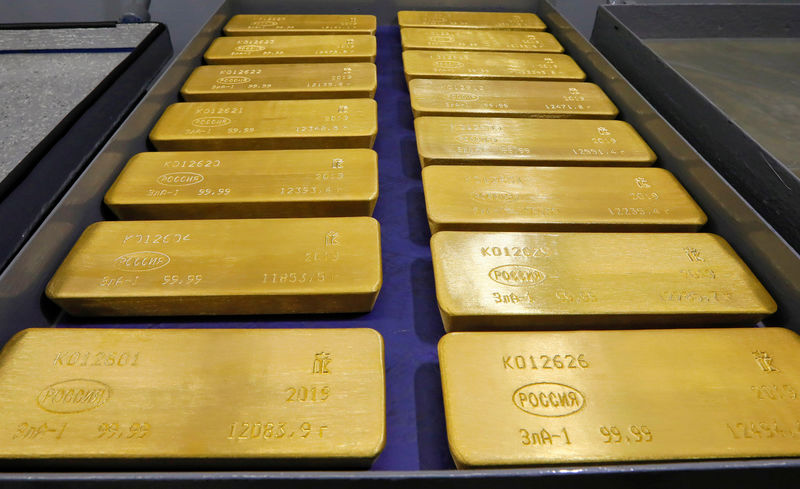Investing.com -- Gold prices steadied on Friday after reversing all their gains this week as sticky U.S. inflation data saw markets reassess their expectations for rate cuts from the Federal Reserve.
A string of weak economic readings from the U.S. and China spurred steep losses in copper and other base metals, amid growing fears that an economic slowdown this year will crimp demand.
These fears still kept gold pinned above the $2,000 an ounce mark, with safe haven demand for the yellow metal remaining relatively high as the economic outlook deteriorated. Bullion prices appear to have formed a new support level at $2,000 an ounce, as concerns over a U.S. banking crisis also drove capital into the yellow metal.
Still, gold saw steep losses in the prior session as sticky U.S. producer price index (PPI) inflation data saw markets scale back their expectations for any interest rate cuts by the Federal Reserve this year.
Spot gold rose slightly to $2,016.97 an ounce on Friday, while gold futures crept up to $2,022.05 an ounce by 20:10 ET (00:10 GMT). Both instruments were now trading flat for the week after sharply reversing course on Thursday.
Thursday’s PPI reading followed a similar pattern as consumer price index data released on Wednesday, which showed that while U.S. inflation eased slightly in April, it still remained well above the Fed’s 2% target.
Fed Fund futures prices show that markets scaled back their expectations for a rate cut this year, and are now pricing in a nearly 92% chance the bank will keep rates steady in June.
Other precious metals also steadied on Friday after sharp losses this week. Platinum and silver futures fell 0.1% and 0.4%, respectively.
Industrial metals steadied on Friday after steep losses in the prior sessions, as disappointing Chinese inflation data and signs of more weakness in the U.S. job market ramped up concerns over slowing economic growth.
Copper futures rose 0.1% to $3.7015 a pound after plummeting nearly 4% in the prior session.
London-traded nickel futures slid nearly 3% on Thursday, while aluminium rose 0.2% from a 2.5% slide.
Softer-than-expected trade and inflation data from China this week ramped up concerns that an economic rebound in the world’s largest commodity importer will be slower than initially expected, heralding weak demand for the remainder of the year.
